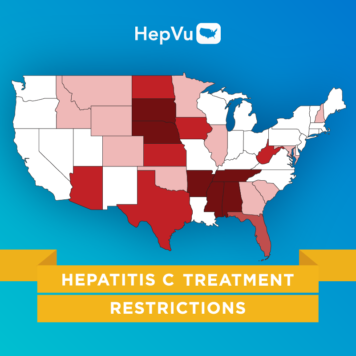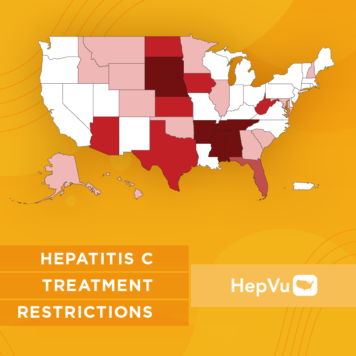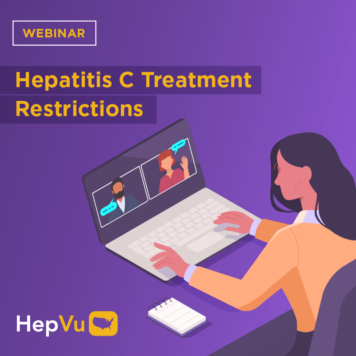Paul Kelly was diagnosed with Hepatitis C in 1993 and faced countless challenges in accessing treatment due to restrictions before finally receiving treatment in 2015.
Q: When were you first diagnosed with Hepatitis C and how did you learn that you were living with it?
I was in prison in 1993 and they took an HIV test along with a Hepatitis C test. On Good Friday of 1993, I was diagnosed with both.
Q: You had several preventable conditions such as cirrhosis and other manifestations of chronic Hepatitis C due to delayed treatment. How did treatment restrictions that used your medical history and history of drug use against you play a role in limiting and delaying your treatment?
I got out of federal prison about 12 years ago and for the first two years, I had a real hard time with addiction – drinking, heroin, cocaine, and stuff like that. I overdosed one time, and I kind of woke up for a little while even though there have been slips here and there since then. I had lost my faculties and was very confused – I didn’t know who I was or where I was going.
As a result of my drug use, I was denied treatment for my Hepatitis C for a long time. I had an itch that lasted 14 months, 24 hours a day, 7 days a week from my illness. That had a strong impact on my mental health. To say it was torture is not an exaggeration whatsoever.
I would also be awake three, four, sometimes five days straight, and then I would crash. I would sleep for 30 to 40 hours and without food, nutrition, or anything. It was horrible. All of it was side effects of my untreated Hepatitis C infection.
I went through some unnecessary stuff when treatment was right there. People shouldn’t have to go through that.
It wasn’t until October 2014 that I finally got approved for treatment, and I didn’t receive a pill until February 2015, nearly 12 years after I was diagnosed.
Q: How did you eventually come to receive treatment and what kind of information or resources do you wish you would have had access to in order to get Hepatitis C care sooner? How did certain programs or individuals help you start and maintain your treatment?
I had a strong advocate in my corner, Dr. Lynn Taylor, who submitted my name and helped me get approved for treatment. Within a week on the medication, the lesions started disappearing from my body. The itch disappeared and my confusion lifted. I was able to know reality. I’ll feel forever grateful and humbled. She reached out to a lot of people and pulled a number of supporters in for different aspects of my treatment.
Q: Why did you become an advocate to eliminate Hepatitis C treatment restrictions?
I became an advocate because it’s horrible that people should wait. They shouldn’t have to wait. They shouldn’t have to wait because they failed a urine test and can’t seem to get better. It shouldn’t be that way. It’s unreal.
Q: What do you want the public and other stakeholders in the viral hepatitis space to learn from your story and experience with treatment restrictions? What message do you have for other patients who may be unable to access Hepatitis C care right now?
It becomes hard not only on the person living with Hepatitis C, but also the person’s family who do not really understand. They can’t empathize with what you’re going through. They truly can’t empathize with the confusion, the itch, the bleeding. I had several nose bleeds that lasted several hours long. They just figured he’s going to die and die quickly.
For patients who can’t get Hepatitis C treatment right now, I want to say, keep fighting, keep trying to get it. Keep going and keep appealing it. I got denied four times and was eventually given treatment.
I’ve grown in leaps and bounds. That’s all I want you to know.




